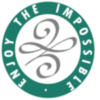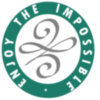
NLP AND TRAUMA
🖊Batoul Khalifeh
|

Many people can deeply attribute their daily mental and emotional struggles to past traumas. However, not everyone is aware that trauma might sneakily lie at the root!
Researches show that NLP has proven to be an effective approach for treating PTSD, as well as a solution for the varied emotional and psychological Traumas and Phobias.
What is PTSD?
Normally, PTSD can develop after a very stressful or frightening event, or even after a prolonged traumatic experience. This can include serious accidents, war, child abuse, neglect, sexual abuse, and many more.
It is a type of anxiety disorder that can occur after experiencing or witnessing a life-threatening or very intense event, capable of strongly marking an impact on our thoughts, habits, and behaviors.
A disorder that often leads to complex consequences, PTSD is addressed through various traditional treatments, such as talking, cognitive behavior, exposure, and group therapies.
Treating PTSD with NLP
On the other hand, the modern alternative treatments to PTSD are information processing, hypnosis, and Neuro-Linguistic Programming (NLP). NLP specifically makes use of language in reframing, redirecting, and reorganizing the brain’s coding experience.
Naturally, put through easy communication, NLP seeks to change the unwanted patterns of the draining emotional and mental behaviors. NLP is simply a greatly effective therapy as its benefits far exceed any other form of traditional therapy.
Compared to other treatments, NLP focuses on the structure of the trauma itself which the proponents describe as a super-stimulus. This logically means that the trauma is even more intense than the traumatic experience.

While NLP is the most recommended PTSD remedy, this form of therapy includes three components: Neurons, linguistics, and relative programming. As our nervous system receives and processes our external environmental experiences through our senses, Our Verbal and nonverbal communication systems give meaning through neural representations.
That’s why it is up to the individual’s ability to program and organize their communication systems to make sure their goals and results are well achieved. Through the mind and language, NLP magically helps in changing the way we perceive our external environment by influencing our bodies and our behaviors. Through NLP, the association between the memory of the traumatic event and its metadata, like emotions, is neutralized and restructured.

Great strides have been made in the effective treatments of PTSD, phobias, and intense emotional states over the past thirty years. The following treatments, including NLP, have been established as effective methods for psychological trauma and PTSD:
- NLP (Neuro-Linguistic Programming).
- EFT (Emotional Freedom Technique).
- EMDR (Eye Movement Desensitization and Reprocessing).
- Fast Phobia Cure.
- NLP Trauma Process.
- Eye Movement Integration.
These treatments have provided significant advancements in addressing and resolving psychological trauma and PTSD without relying on medications.
Because Traumas are typically caused by an extrinsic agent, they are often associated with certain cues. For example, a Vietnam War veteran may experience intense anxiety at the sound of a helicopter, because it has become associatively connected with the traumatic combat memories.
A person who has been in an automobile accident may become severely fearful about riding a car. Basically, what the brain is doing, when it is experiencing PTSD, is linking a past feeling of not being safe with a current stimulus or experience that reminds the brain of past events.
NLP aims to rewire the traumatic events in the brain in a way that stimuli are no longer compelling or used as a reference experience for the present. In addition, NLP scrambles and revises the images, smells, sounds, and emotions of the past event so that they are no longer emotionally exhausting.
Often, fear responses of fight, flight, and mostly freeze, will cause the traumatic event to stop in time as the brain never finishes the story. In other terms, the brain doesn’t realize that the event is over.
What Does NLP Work With?
NLP works with the part of the neurology that is storing these memories of danger and letting the system know that they made it, they survived!
Recalling a traumatic event typically starts and stops the memory at specific points. The NLP fast Trauma cure uses double dissociation to help clients recall the traumatic events without associating them with the memory. Once the person learns how to disassociate from the traumatic event, they are likely to choose disassociated recalls from then on.

The technique of ‘Reframing’ explores finding other choices to satisfy the positive intention of the stress and anxiety, that can also be an important factor in the treatment of traumatic symptoms.
If you are not already aware of your traumatic past, then it can be hard to let go of the strong emotions keeping you painfully stuck in the past!

